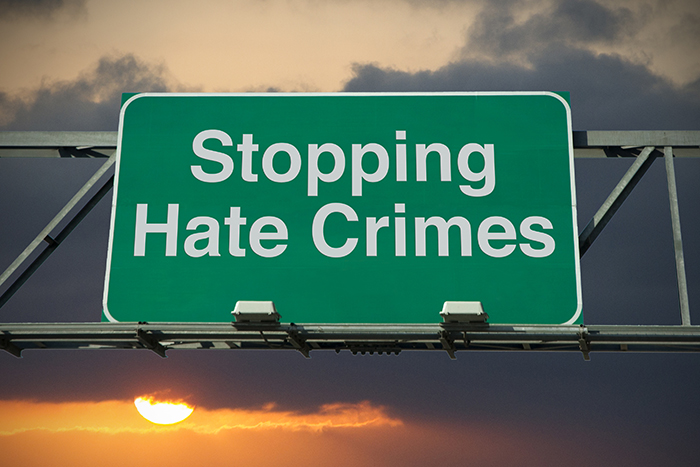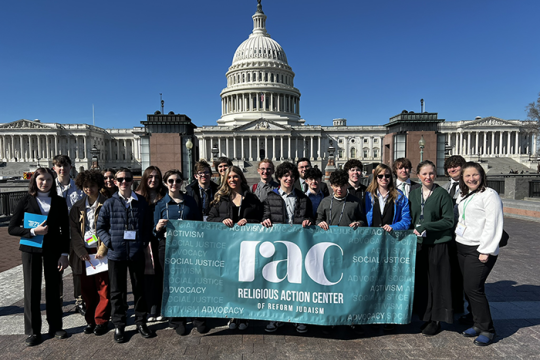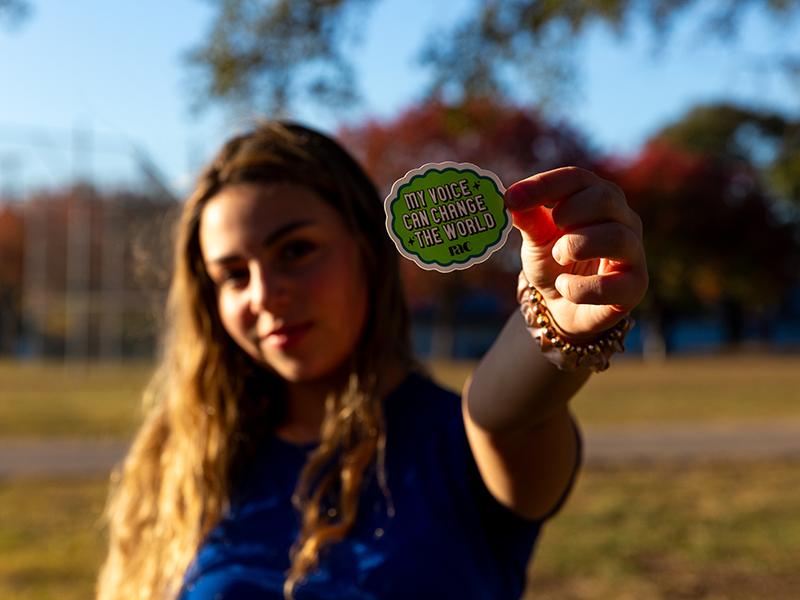
Last week, the FBI released its annual compilation of hate crimes statistics, summarizing all hate crimes reported to the FBI in 2021. While the statistics themselves are grim and disturbing, the most alarming statistic in this year’s announcement is what was not reported. While underreporting of hate crimes has been an ongoing issue, this report is more inaccurate than usual.
This year was the first year the FBI required all law enforcement agencies to report all crime, including hate crimes, through the National Incident-Based Reporting System (NIBRS). While NIBRS is a more accurate, detailed way of reporting crimes, many jurisdictions were unwilling or unable to make a complete switch to the new system by the FBI’s deadline of January 1, 2021. This resulted in critically inaccurate reporting, with major population centers such as New York City, Los Angeles, Chicago, Phoenix, and almost the entirety of both Florida and California left out of the report. This year, 11,834 agencies took part in the hate crime data collection, a 22 percent decrease from last year and the lowest number of agencies in two decades. Ninety million fewer Americans are covered in the 2021 report than were covered in the 2020 report. More than 80 percent of the agencies that participated reported zero hate crimes, including 37 with populations over 100,000. The annual report is never comprehensive, but this year’s report is so drastically incomplete that any comparisons between 2021 and previous years are essentially meaningless.
Despite the dramatic underreporting, the FBI still reported 7,262 hate crimes in 2021. Race/Ethnicity/Ancestry-based hate crimes made up 63 percent of all reported hate crimes in 2021, with anti-Black hate crimes making up 49 percent of racially based hate crimes. The FBI reported only 324 antisemitic hate crimes in 2021, less than half as many as 2020. The Anti-Defamation League (ADL), however, reported 2,717 antisemitic incidents in 2021, a 34 percent increase from their 2020 audit and the highest number on record since the ADL began tracking these incidents in 1979.
Almost 20 percent of hate crimes were motivated by sexual-orientation or gender identity bias, with 200 anti-transgender and 107 anti-gender non-conforming hate crimes. Even more so than other statistics, this data likely underestimates the true number of attacks carried out against transgender and gender non-conforming people. According to the Human Rights Campaign (HRC), 2021 was the deadliest year on record for transgender and gender non-confirming individuals. At least 57 transgender or gender non-conforming people were murdered in 2021, many of them transgender women of Color. However, the FBI only reported one anti-transgender hate crime murder in 2021 and between 2013 and 2020 the FBI recorded only 11 anti-transgender murders, while HRC recorded over 300. While not every incident recorded by HRC is classified as a hate crime, the discrepancy in these numbers is astounding.
In addition to the general underreporting of hate crimes, the inaccuracy of FBI data on anti-trans violence is also in part because law enforcement or family members refuse to acknowledge the victim’s gender identity, making it difficult to identify the incidents as anti-transgender hate crimes. It is also in part because low levels of trust in law enforcement, especially in Communities of Color and immigrant communities, deter many victims from reporting hate crimes. HRC found that, since 2013, over thee quarters of recorded victims of fatal violence against transgender and gender non-conforming people were transgender Women of Color – with Black transgender women mading up 63 percent of victims. These women face the compounding injustices of racism, transphobia, and misogyny and are the least accurately represented in FBI data.
In an attempt to fill the gaps in hate crime reporting, congress passed the COVID-19 Hate Crimes Act in May 2021. The law aims to strengthen hate crimes data collection, reporting, and response measures, with a goal of making future statistics more accurate. It also provides state and local law enforcement agencies with additional resources to help prevent and respond to hate crimes. The law includes provisions of the Khalid Jabara-Heather Heyer NO HATE Act, named after Khalid Jabara and Heather Heyer, two hate crime victims whose murders were prosecuted as hate crimes but not reported in the FBI’s annual statistics.
While full implementation of the COVID-19 Hate Crimes Act will help agencies improve on reporting and responding to hate crimes, the disappointing 2021 report raises questions of what else must be done to improve reporting. We strongly encourage Congress and the Biden administration to mandate hate crime reporting by all law enforcement agencies. Requiring agencies to report is the only way to know the full scale of hate crimes in the country.
Despite the wishes of those who seek to harm and silence us, acts of hatred will not deter us from standing proudly as Jews and upholding our commitment to “love [the stranger] as yourself” (Leviticus 19:33-34). We stand strongly against hate and bigotry of all kinds and hope that our government can work together to address the epidemic of hate plaguing the United States today.
Take Action
- To learn more about responding to antisemitic incidents in your community, Download the URJ-ADL “Responding to Antisemitic Incidents: A New Resource for URJ Communities” resource today.
- If you or someone you know has experienced or witnessed an incident of antisemitism, extremism, bias, bigotry or hate of any kind, please report it to the ADL.
- Get involved with the Reform Movement’s Audacious Hospitality initiative to foster racial diversity, equity, and inclusion.
Related Posts

Building a Sukkah That Stands for Justice

Justice Within Reach


